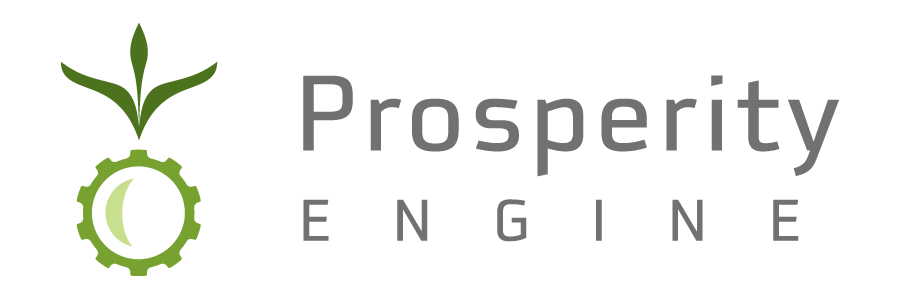Top 7 Tips for FInancial Planning
As a financial planner, there’s a question I’m asked more than anything else.
Spoiler alert! It isn’t “How much insurance should I buy”, nor is it “Where is the best place to invest”.
Instead, my wisest clients ask me “What advice would you give to your younger self if you could step back in time?”, or to put it into my own words, "What simple nugget of information and strategy would have made my life noticeably better than it is today?"
One thing you’ll learn about me is that I’m always gathering and looking for good information. Throughout my life, I’ve learned there isn’t just one answer to any of those questions.
Strategies abound and what works for one isn’t always the best answer for another. So, in that light, I’ve compiled a list of answers to the question asked above.
Here are the top 7 things I would tell myself for my financial planning if I could travel back in time:

Tip #1: Spend less than you earn.
No matter what stage you’re at in life, this is the ground floor for good fiscal management. This isn’t always easy, and sometimes isn’t possible, but if you can find a way to live on less than 90% of what you earn and save the rest, retirement by age 60 can easily be possible.
Example: When I was in my early 20's, I was earning a pittance. Hardly above the poverty line. After being denied a bank loan to start a business, I walked away knowing one thing - I had to work with what I had. That year, I realized that I was the only person who held the reigns. The only way I would start to get ahead would be to save, no matter how challenging it may be. After a year and a half, I had saved more than half my income, and had invested it into a business that only 5 years later, earned more in a year than I could earn working.

Tip #2: Save Regularly.
Even if you know you need to save more, just save. If it’s only $10 a month, you’ll still build one of the most simple habits for success. I usually recommend options like WealthSimple, as they allow for periodic deposits that can be adjusted at any time. Got a raise? Double your monthly savings! Lose your job? Reduce your monthly savings temporarily with a simple email.
Example: When banks are assessing your credit worthiness, one significant factor they look at is your savings habits. Even if you are only saving $10 a month, that habit positively reflects on your financial stability.

Tip #3: Keep Core Expenses Low.
As you move through life, weigh what you add to your expense list and determine if it’s really necessary. From purchasing a car to buying a home appliance, opt for quality over quantity. This can sometimes mean paying more for something rather than going for the cheapest alternative.
Example: A friend of mine bought a $1600 designer down jacket 20 years ago. When I heard the price, I gasped. “Who would pay that much for fashion?” It seemed ridiculous when you could find something similar at half the price. Now, 20 years later her jacket still garners compliments, keeps her warm in our cold winters, has lasted years of use, and has given me a reason to reassess my thought process when making purchases.

Tip #4: Use Accountability Tools.
Budgets don’t always work for everyone, but these days there is little excuse to not keep track of what you spend. Accountability is key and a budget is just one way to carry that out. Personally, I use a tracking tool called Mint.com. It downloads your banking and credit card transactions and easily categorizes each expenditure. You can even split receipts between different categories and receive text alerts when you’ve hit a self-imposed cap (like a weekly budget on dining out). Remember, the end goal is to have accountability for your spending.
Example: A couple I work with that both work in law enforcement often bought themselves a coffee while on the job. Seemed like a simple indulgence. When asked, they were unsure how much they spent in a month, but didn’t think it was significant. After asking them to check, they were surprised to find they spent more than $1,200 a month combined buying themselves a coffee. Some self-accountability found them another $600 a month to add to their savings.

Tip #5: Keep Good Records
Keep track of your finances. Mint.ca is a great option for storing and reviewing your transactions, but I’d suggest investing in a good scanner or filing cabinet to keep all your information centralized. When a question arises, most of your time is spent looking for information and a fraction of the time is spent analyzing it. Keeping good records will make the job infinitely easier.
Example: When confronted with an audit, I was asked to produce reasoning for a specific entry on my corporate tax return. Thankfully, a solid system of record keeping made the ordeal only as painful as finding a fax machine. Which, as I discovered, is quite a bit more difficult than I would have thought.

Tip #6: Take bigger risks early, so you can take fewer risks as you near retirement.
The further you are from retirement, the better you can absorb risk. Risk is relative, so this doesn’t mean everyone should take the same risks. Instead, everyone should be assessing what risks they can handle now that they might not be able to handle later.

Tip #7: Know how much you need to save each month.
Understanding what your goals and aspirations mean in tangible terms is an important part of achieving them. While the math is simple, many people haven’t revisited it since they were in school. I use simple tools (many can be found online for free) to process my goals, such as desired retirement age and retirement income, to help determine how much I need to be saving today to be on track. When determining the amount you need to save to reach those goals, be sure to factor in pension programs through work, too.
Example: I sat with a 50 year old client who had been stressing about retirement preparations. He felt he wasn't saving enough and continually asked himself if he had spent too much in his younger years leaving him with less lifestyle when he retired. After taking inventory of his assets, his current savings, and - most importantly - clarifying his goals, he was astonished to discover that he was saving more than he needed to achieve his target. But, rather than reduce his savings, he decided to keep the additional as a buffer. If things went as planned, he'd be in a position to retire sooner. Most importantly, he didn't stress about how much he was saving and spending anymore.
Need more tips?
I’ve got plenty of more tips to share, but these are my Top 7 Tips for Financial Planning. If you want to learn more, feel free to reach out to me for a full list of 20 key Financial Planning Tips, to help you get started.
If you have questions or want to learn more about financial planning, investment, and insurance - email me at eric@prosperityengine.ca.
See a sample financial plan
